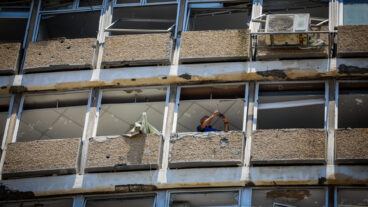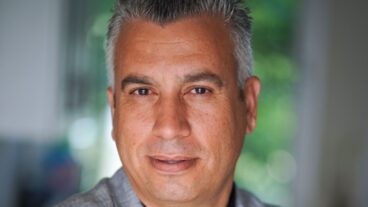The aftermath of a hurricane in Biloxi – rescue workers have to understand they touch people on psychological and social levels when they respond to help.Israel’s bitterly-won expertise in dealing with trauma is benefiting communities in southern Mississippi, with the recent meeting of a delegation from Kiryat Shmona’s Community Stress Prevention Center with a group of first-responders in Biloxi.
The CSPC, founded in 1980 with the aim to provide psychological support and resiliency training for populations situated near Israel’s precarious northern border, has since expanded its operations to include international consultation and training for professionals in both disaster management and stress treatment in all aspects of daily life.
Previously, the center has assisted local staff in the wake of Turkey’s 1999 earthquake and South-East Asia’s 2004 tsunami, and provided training for professionals affected by terrorism in the aftermath of 9/11 and the 2004 Beslan massacre.
Arriving last week in Biloxi, at the center of the US hurricane belt, the group of Israeli trainers provided a free four-day course for members of local emergency services in the ‘integrative resilience model’ known as Basic Ph, the South Mississippi Sun Herald reported. The course aimed to provide first-responders with the psychological tools to cope with their experiences in dealing with both natural and man-made disasters.
Dr. Yehuda Shacham, of the Israeli Trauma Coalition which includes the Kiryat Shmona center, told the Sun Herald that police and firefighters have to understand they touch people on psychological and social levels when they respond to help.
“Whenever they treat injured people or a family of victims, the way they react and approach these people will make a difference in the way these people cope,” said Shacham.
John Olson, interim director of Biloxi’s Center for Community Resilience, said that the training would benefit not only future operations but would also address the dangers of a work culture marked by a general reluctance to ask for help.
“You’ve got a lot of people who’ve left the various forces because they just can’t handle it anymore,” Olson told the Sun Herald, adding that emergency workers often falsely assume themselves to be immune to the trauma surrounding them. “You can’t be so hard to not say it’s heartbreaking.”
The training was designed to correct such institutionalized misconceptions by operating “virally,” changing the mindset of a small group of first-responders, who in turn train a larger group of their peers. “We don’t look for pathologies,” said Ruvie Rogel, deputy CEO of the center in Kiryat Shmona. “We look for the strength of people. We come from the positive. This is based on the belief that everyone has coping skills.”
With seminars on topics such as “the inner world of victims” and “compassion fatigue,” and follow-up activities being planned, the course left participants eager to spread their new knowledge.
“The biggest part is going to be our ability to take this back to our fellow officers,” said Gulfport policeman Michael Saucier. “We can enhance their abilities to cope with traumatic incidences and continue doing the things we do as a stronger police force.”![]()












